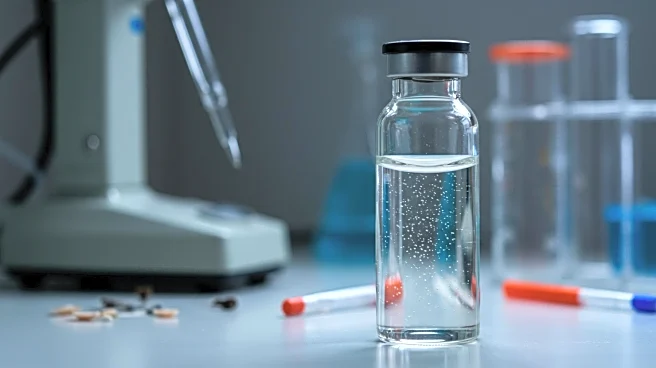What's Happening?
Researchers in Japan have successfully transplanted a unique courtship ritual from one fruit fly species to another by altering gene expression in the brain. Male Drosophila subobscura typically regurgitate food as a nuptial gift during courtship, a behavior absent in D. melanogaster. By inducing the expression of the FruBM protein in D. melanogaster's insulin-producing brain cells, scientists replicated this gift-giving behavior. The study highlights how small genetic changes can repurpose existing brain circuits for new social behaviors, offering insights into the genetic basis of social interactions.
Why It's Important?
This research provides a deeper understanding of how evolution can create new behaviors by modifying existing neural circuits. The ability to transfer innate behaviors between species demonstrates the precision of modern genetic tools and could have implications for studying social behaviors in other animals, including humans. The findings may lead to advancements in genetic engineering and behavioral science, potentially influencing fields such as neurobiology and evolutionary biology.
Beyond the Headlines
The study suggests that evolution repurposes existing systems rather than creating new ones from scratch, which could inform future research on the development of complex social behaviors. Understanding these mechanisms may also contribute to the study of species differentiation and the evolution of social interactions across various organisms.











